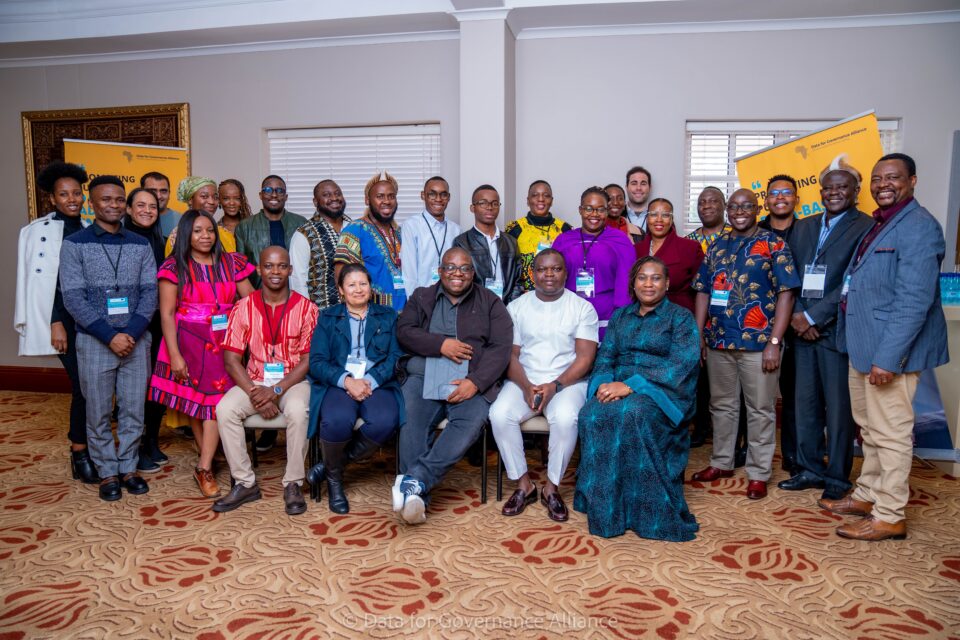To Address Africa’s Pressing Challenges
A Data for Governance Alliance training for civil society organisations (CSOs) and African Union (AU) member organs ended Friday with a challenge to use their new skills to proactively address Africa’s pressing problems.
Bringing the week-long workshop in Cape Town, South Africa, to a close, Ric Amansure, head of communications for the Institute for Justice and Reconciliation, urged the 35 representatives of CSOs and AU organs to put their acquired skills in data analysis, communications, and advocacy to use.
“The potential for enhanced collaboration, access to expertise, progress assessment, cocreation of advocacy programs, and the implementation of joint monitoring and evaluation offer the promise of a more impactful and collective approach to addressing the challenges before us,” Amansure said.
The European Union-funded Data for Governance Alliance project aims to equip panAfrican CSOs with data-driven tools and knowledge to engage and collaborate effectively with the AU’s African Governance Architecture and national governments to advance governance, democracy, and human rights across the continent.
Lauding the project’s achievements, Amansure said, “The Data for Governance Alliance is setting a course for a future where governance is more transparent, democracy is more vibrant, and human rights are vigorously protected throughout Africa.”
The workshop brought together pan-African CSOs and participants from four African Union organs – the African Peer Review Mechanism (APRM), the Pan-African Parliament (PAP), the Committee on the Rights and Welfare of the Child (ACERWC), and the Economic, Social and Cultural Council (ECOSOCC). Data for Governance Alliance partners and Charter Project Africa representatives also attended.
Themed “Enhancing governance, democracy, and human rights in Africa: Empowering panAfrican civil society to effectively use data to enhance advocacy,” the workshop provided a platform to discuss critical issues such as elections, unconstitutional changes of government, African youth in politics, and child welfare. Highlights of the latest Afrobarometer survey findings offered valuable insights on these issues and formed the basis for the discussions.
APRM representative Lennon Monyae noted the importance of participants’ advocacy highlighting citizens’ experiences and priorities.
“African citizens, especially the youth, have started questioning the social contract between the state and citizens because they are not seeing the dividends of democracy,” Monyae
said. “This is the reason why UCGs (unconstitutional changes of government) will continue to appropriate public discontent as a justification for their unlawful actions.”
Reflecting on advocacy lessons from the workshop, Chrissy Dube from Good Governance Africa said, “You need to look into the people that you’re targeting, and make sure that the right stakeholders are involved, ask the right questions, and make sure that the advocacy plan is airtight.”
The Data for Governance Alliance will convene in Accra in October, where it will host the next stakeholders’ training before concluding this year’s round of workshops in Nairobi in November.
About Data for Governance Alliance
The Data for Governance Alliance is a four-year project that promotes data-based advocacy and engagement between pan-African civil society organisations (CSOs) and African Union organs. The project is led by Afrobarometer with partners including the Center for Democratic Development (CDD-Ghana), the Institute for Development Studies at the University of Nairobi, the Institute for Justice and Reconciliation, and Laws.Africa. The project is funded by the European Union.

